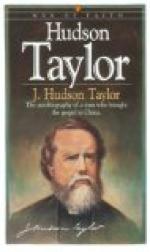The Dutch thus made their settlement before the Puritans were planted in New England, and from their first coming, “being seated in Islands and at the mouth of a good river their plantations were in a thriving condition, and they begun, in Holland, to promise themselves vast things from their new colony.”
Sir Samuel Argal in 1617 or 1618, on his way from Virginia to New Scotland, insulted the Dutch and destroyed their plantations. “To guard against further molestations they secured a License from King James to build Cottages and to plant for traffic as well as subsistence, pretending it was only for the conveniency of their ships touching there for fresh water and fresh provisions in their voyage to Brazil; but they little by little extended their limits every way, built Towns, fortified them and became a flourishing colony.”
“In an island called Manhattan, at the mouth of Hudson’s River, they built a City which they called New Amsterdam, and the river was called by them the Great River. The bay to the east of it had the name of Nassau given to it. About one hundred and fifty miles up the River they built a Fort which they called Orange Fort and from thence drove a profitable trade with the Indians who came overland as far as from Quebec to deal with them.”
The Dutch Colonies were therefore in a very thriving condition when they were attacked by the English. The justice of this war has been freely criticised even by English writers, “because troops were sent to attack New Amsterdam before the Colony had any notice of the war.”
* * *
On
his view
Ocean, and earth, and heaven burst before
him,
Clouds slumbering at his feet
and the clear blue
Of summer’s sky in beauty bending
o’er him.
Fitz-Greene Halleck.
* * *
The “Encyclopaedia Britannica” thus briefly puts the history of those far-off days when New York was a town of about 1500 inhabitants: “The English Government was hostile to any other occupation of the New World than its own. In 1621 James I. claimed sovereignty over New Netherland by right of ‘occupancy.’ In 1632 Charles I. reasserted the English title of ‘first discovery, occupation and possession.’ In 1654 Cromwell ordered an expedition for its conquest and the New England Colonies had engaged their support. The treaty with Holland arrested their operations and recognized the title of the Dutch. In 1664 Charles the Second resolved upon a conquest of New Netherland. The immediate excuse was the loss to the revenue of the English Colonies by the smuggling practices of their Dutch neighbors. A patent was granted to the Duke of York giving to him all the lands and rivers from the west side of the Connecticut River to the east side of Delaware Bay.”




